What kind of learning should we choose for our children?
Spring is a great time to start something new. Learning languages and other skills is great, but there is nothing better than engaging children in lessons where they develop their communication skills. We spoke to Shinichi Furuya, Doctor of Medicine and music performance scientist, about the Power of Music.
Early childhood education that develops mental flexibility is key
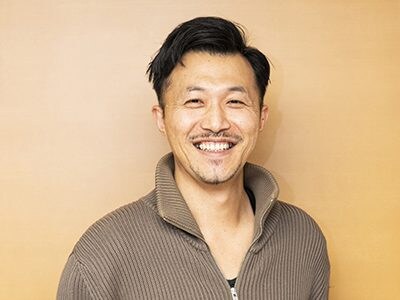
Music education is said to increase emotional intelligence (EQ), but is this true? Dr. Furuya, a music performance scientist at Sony Computer Science Laboratories, Inc. who started playing the piano at age 3, joined Yamaha Music School at age 6, and then studied there for 10 years, offered us his perspective.
Dr. Furuya: It has been reported that children who have received music education since early childhood have a high EQ. They seem to have enhanced abilities to execute tasks and solve problems. In Japan, these abilities may be difficult to acquire simply by studying at school. Group discussion classes are common overseas, so students in other countries develop these abilities more naturally. I feel I acquired these abilities at Yamaha Music School.
So, what kinds of people possess a high EQ? Many demonstrate the ability to recognize their own psychological state, to motivate themselves, to understand and empathize with others, to build good relationships, and to create an environment where they can showcase their unique capabilities. In other words, high EQ individuals attract large numbers of collaborators and, as a result, achieve high levels of performance.
──Why does music education develop problem-solving abilities?
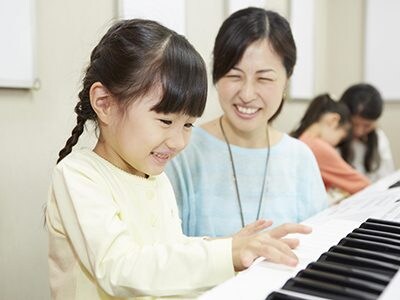
Dr. Furuya: When I am learning music, I often come across things that “I cannot do.” This was also the case at Yamaha Music School. My teacher did not deny that I could not do something, but instead provided me with the “I can” experience one step at a time. Through this approach, I was able to accumulate successful experiences and continue moving to the next level.
This is a very logical teaching method. Most problems are not solved at once. They need to be analyzed, broken down into several components, and brought down to a level that the problem-solver can handle.
For example, if I could not play a long musical phrase well, I first had to find the part that caused problems and then practice that part. This is precisely the same process that is required when solving problems that we face in society. I learned this at a young age from a Yamaha Music School teacher.
It brought me great joy to learn how to do the things I initially could not do. After repeatedly having this experience, I began to look forward to solving problems and was able to take on various challenges with a positive mindset. This experience is alive and well within me today.
In research, conquering new obstacles is a continuous way of life, but I believe I can always find the answer if I set up the actual problem well. I believe this ability is a great tool in social activities.
──Why start at early childhood when the mind is flexible?
Dr. Furuya: Studies have shown that the earlier you start training in music, the better your ability to recognize pitch correctly and sense rhythm accurately. In other words, listening to plenty of good music and receiving music education during the "flexible brain" period will create a lifelong asset that allows you to deeply enjoy music for the rest of your days.
If children start too early, however, they will not understand what they are told or the meaning of the do-re-mi’s. A desirable age to start seems to be around the age of four or five. It is known that commencing music education around this period increases the number of nerve cells in the auditory cortex, the area associated with hearing.
In the world of piano education, it is often said that it is important to listen to a lot of “good music.” Music education in early childhood is equally important.
For example, it is known that those who started playing the piano by the age of 7 have more nerve cells in the auditory cortex than those who started playing later. It is also said that children’s ability the acquire perfect pitch ends around the age of 8.
According to studies conducted by Harvard University’s Professor Gottfried Schlaug and others, it was found that the auditory cortex of a 6-year-old child who underwent professional music training for 1 year and 3 months contained more nerve cells than that of an untrained child of the same age. It was also concluded that children with a higher number of nerve cells had a higher ability to sense rhythm and melody.
Parental support is crucial in developing children's musical abilities
──How should parents contribute to developing their children’s musical abilities?

Dr. Furuya: I think there are two key points here. The first is to never scold your child. From the viewpoint of memory mechanisms, there are no benefits to scolding or getting angry at your child. There are, however, many negative effects. I remember practicing hard while being reprimanded by my parents, but then failed at my piano recital. And again, I was scolded. It was a vicious cycle. I probably failed because I practiced while being scolded. Being told off constantly makes it difficult to remember things. Being complimented, on the other hand, helps memories take root in the brain.
Secondly, parents should have a good understanding of how the brain works, and of its ability to "work things out when left alone." Some parents force their children to practice over and over late into the night until they learn to do something. I think if your child cannot do it, let them take a break or go to bed. The brain organizes memories during sleep. I remember not being able to play a tune, but after I slept through the night and woke up the next morning, I was able to play it. This happened many times.
Group lessons help students develop concentration, cooperation and communications skills
──What are the aims of Yamaha Music School’s group lessons?
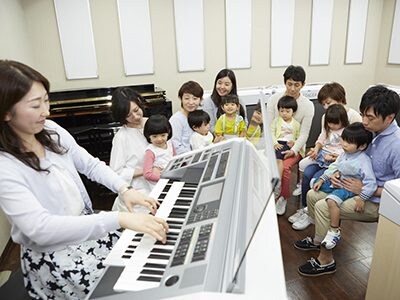
Dr. Furuya: There are four main aims. The first is to have a common goal for the entire group. The second is to make sure that each person has a role. The third is to create an environment where children can engage in friendly competition while in conversation. The fourth is to ensure that each person has a goal and presents their achievements.
The group lessons go through the same process as when a project is launched to solve a social issue. The Yamaha Music School group lessons hone children’s cooperative abilities while equipping them with presentation skills.
For example, during an ensemble performance, students can listen to and interact with other friends' performances. When I am playing music, I always have the habit of trying to sense how the other person reacts. Therefore, when I am performing, I can instantly change the content and tone of the story while looking at the other person's face and appearance.
This approach also helps students enhance their concentration and patience by listening to their own sounds, distinguishing these from the sounds produced by their friends, and seeking harmony. Students learn to push the upper bounds of their efforts.
Learning to do this naturally while enjoying myself was the greatest asset for me during my time at Yamaha Music School.
──Can music education really improve language acquisition ability and help distinguish emotional subtleties?
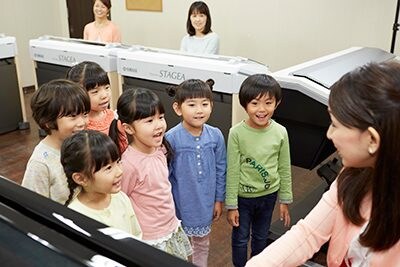
Dr. Furuya: Absolutely. Music and language have a lot in common. Both consist of pitch, rhythm, and grammar. The part of the brain that controls language also works when processing music.
In daily conversation, we listen to multi-pitched sounds such as differences in intonation and the highs and lows of individual voices. Many musicians are multilingual. They may not always know specific words, but they are able to hear how these unknown words sound, and therefore often progress quickly.
Voices convey not only the meaning of spoken words, but also the emotions of the speaker. Does this mean that musicians with a good ear also have a heightened ability to understand the emotions behind a speaker’s voice? According to research by Professor Kraus a musician’s brainstem responds more actively to the complex wave form created by the voice of a baby trying to express something. The musician's brain is more sensitive to voices trying to convey emotions. It can be argued that music education gives people a wealth of abilities to read the subtleties of other people’s emotions.
Shinichi Furuya
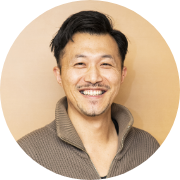
Researcher at Sony Computer Science Laboratories, Inc., specially appointed associate professor at Sophia University, music performance scientist. Visiting professor at Hanover University of Music, Drama and Media.
Graduated from Osaka University’s School of Engineering Science, earned Doctor of Medicine degree from Faculty of Medicine. Recognized as Excellent Young Researcher by Japan’s Ministry of Education, Culture, Sports, Science and Technology.
Author of Transcendental Mechanism: The Science behind the Pianist’s Brain (Shunjusha Publishing), translator of What Every Pianist Needs to Know about the Body. Research interests include supporting performers by elucidating the skills and inconveniences of piano performance.
As a research and educator, dreams of establishing a research and education base in Japan and overseas that can contribute to everyone who loves the piano and creating a culturally rich and sustainable world where everyone can play for a lifetime the music they envision.
Text: Mikako Wakiya / Photos: Miho Fujiki




